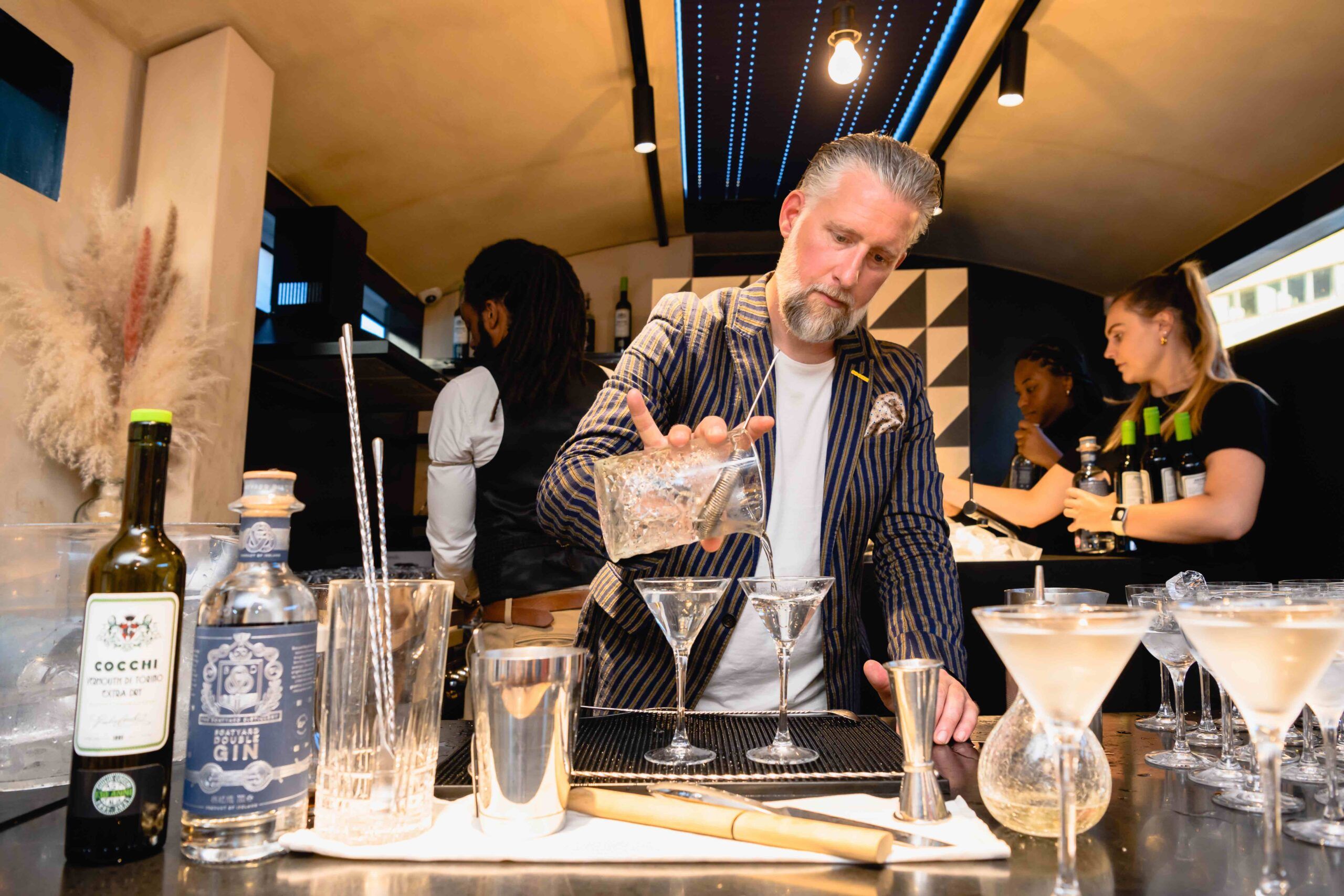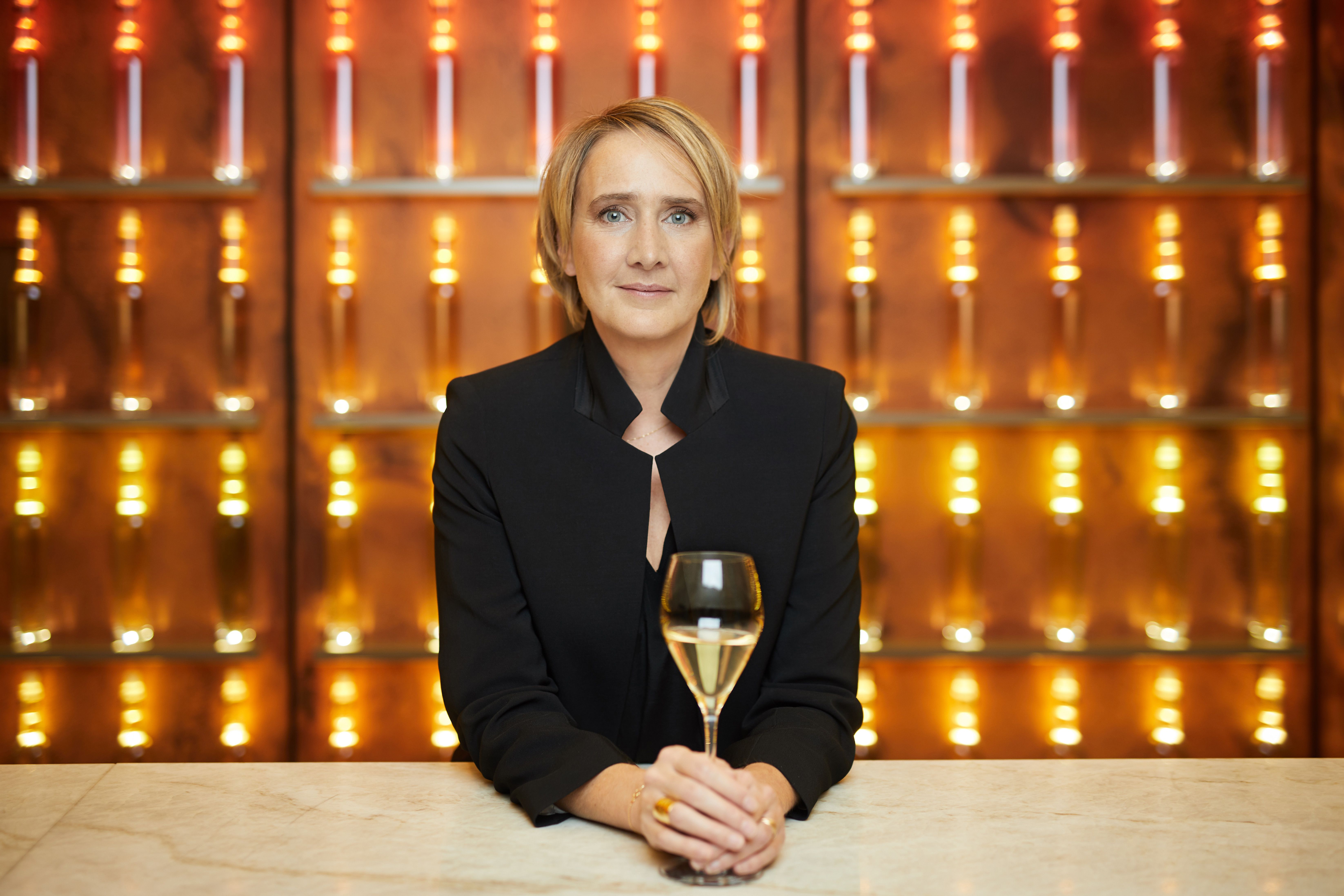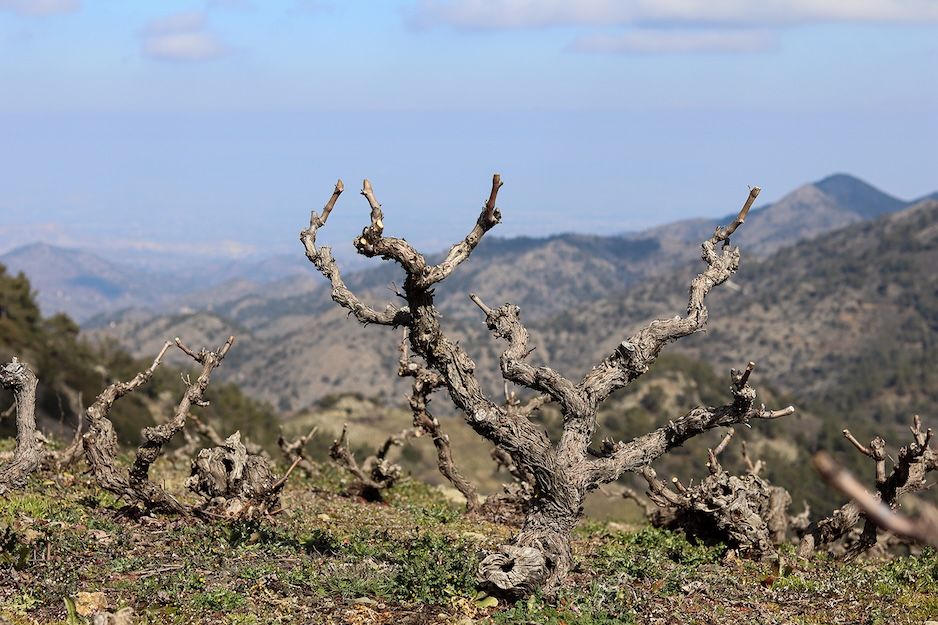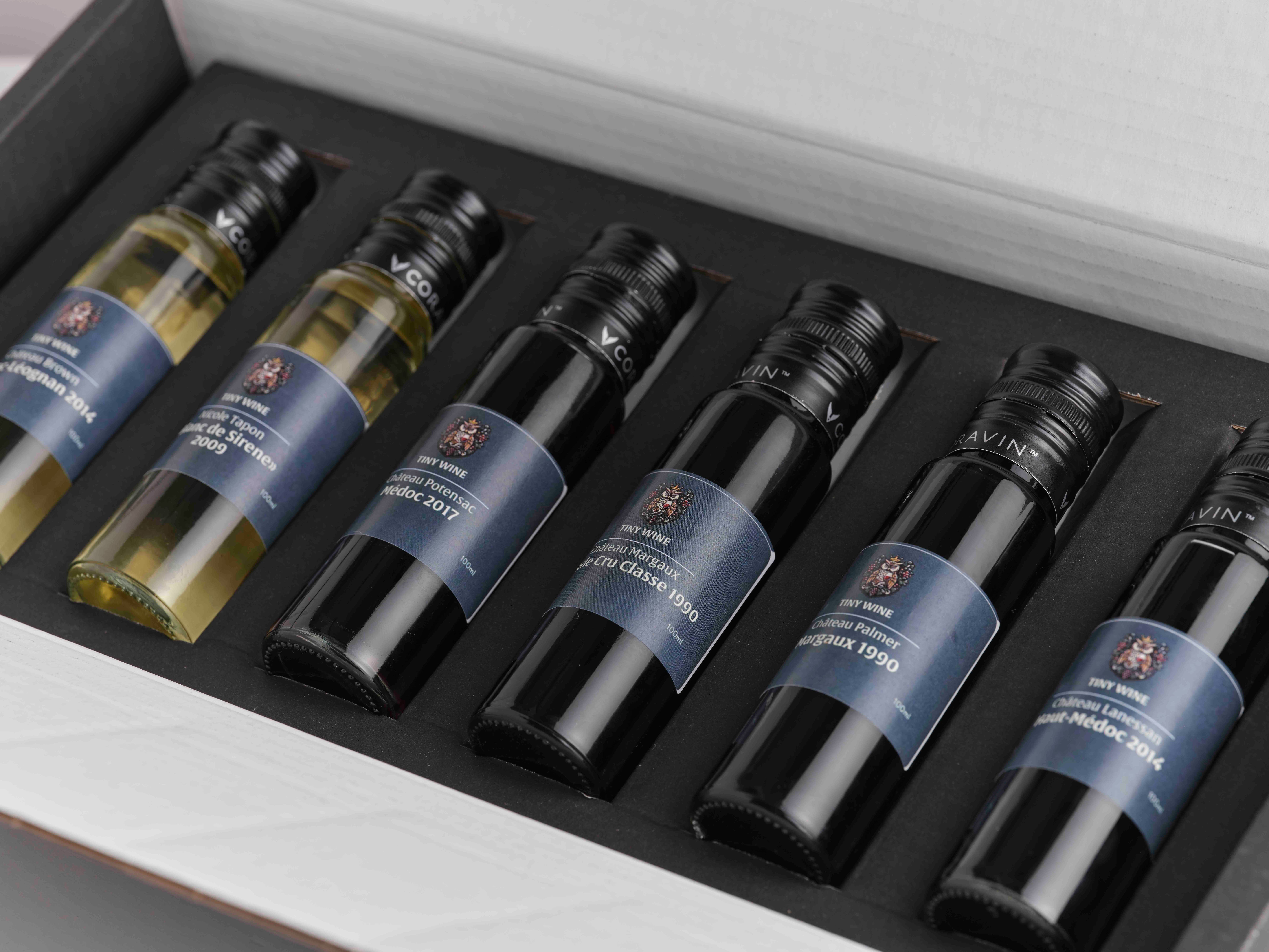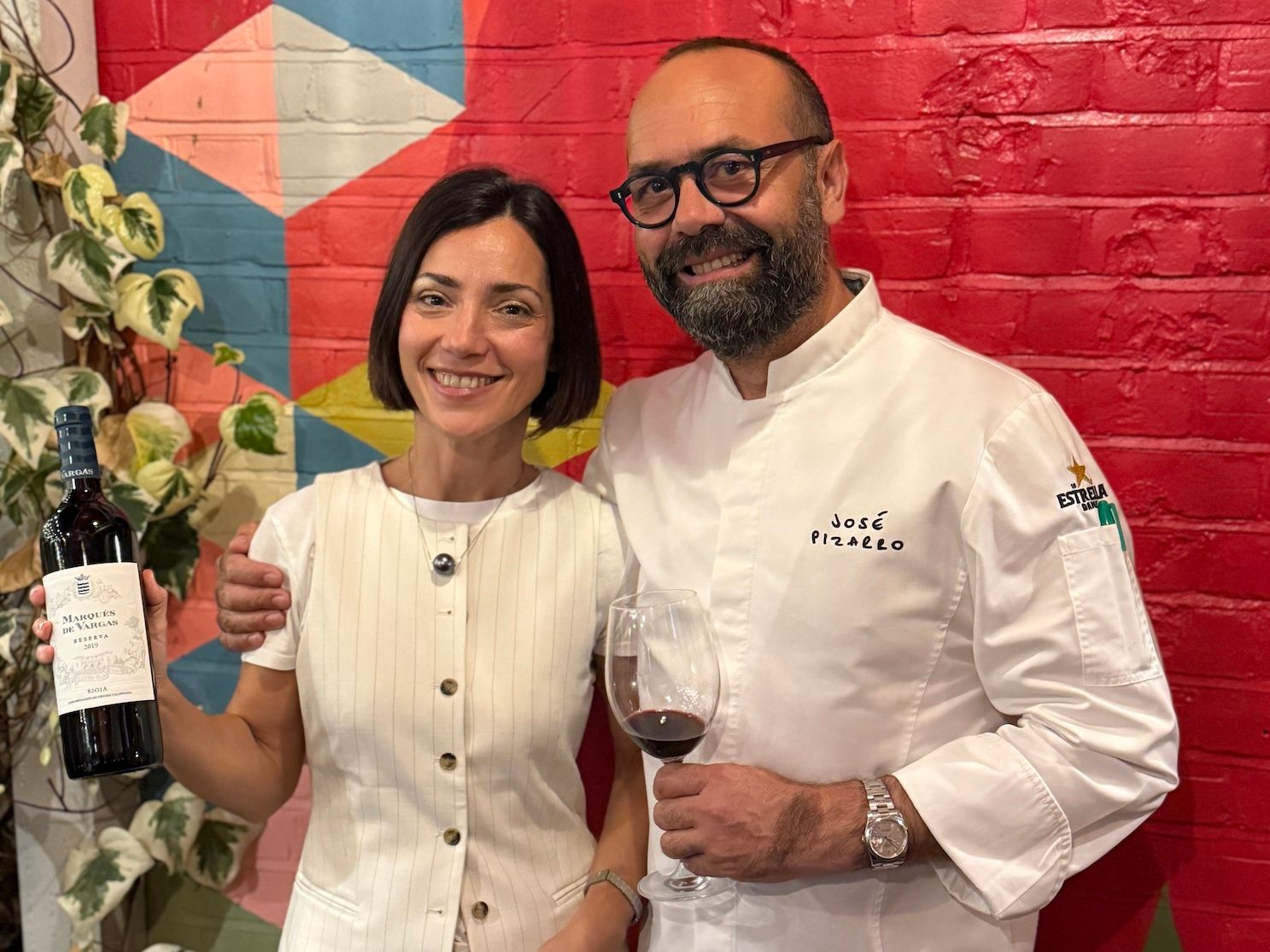Jon Lister is one of a number of talented bar professionals that have moved from serving drinks to selling them at Speciality Brands.
“I have swapped the back bar to working with a dream range full of prestige products,” is how Jon Lister explains what it has been like for him moving across from the front line of working in busy, icon bars to heading up the creative demands of one of the UK’s most respected and important premium brand suppliers.
He admits it was a bit of a risk at the time and very much stepping into the unknown, but he also instinctively knew it was the right decision at the right time in his career. He had, after all, been working behind bars since his late teens, starting out in a Whitbread pub in Devon.
“I was getting a little tired of dealing with five deep queues at the bar on a Saturday night,” he says.
He had also just represented the UK in the Diplomático World Tournament, part of Speciality Brands’ stable of brands, and “I think that’s when they earmarked me for a position,” he says.
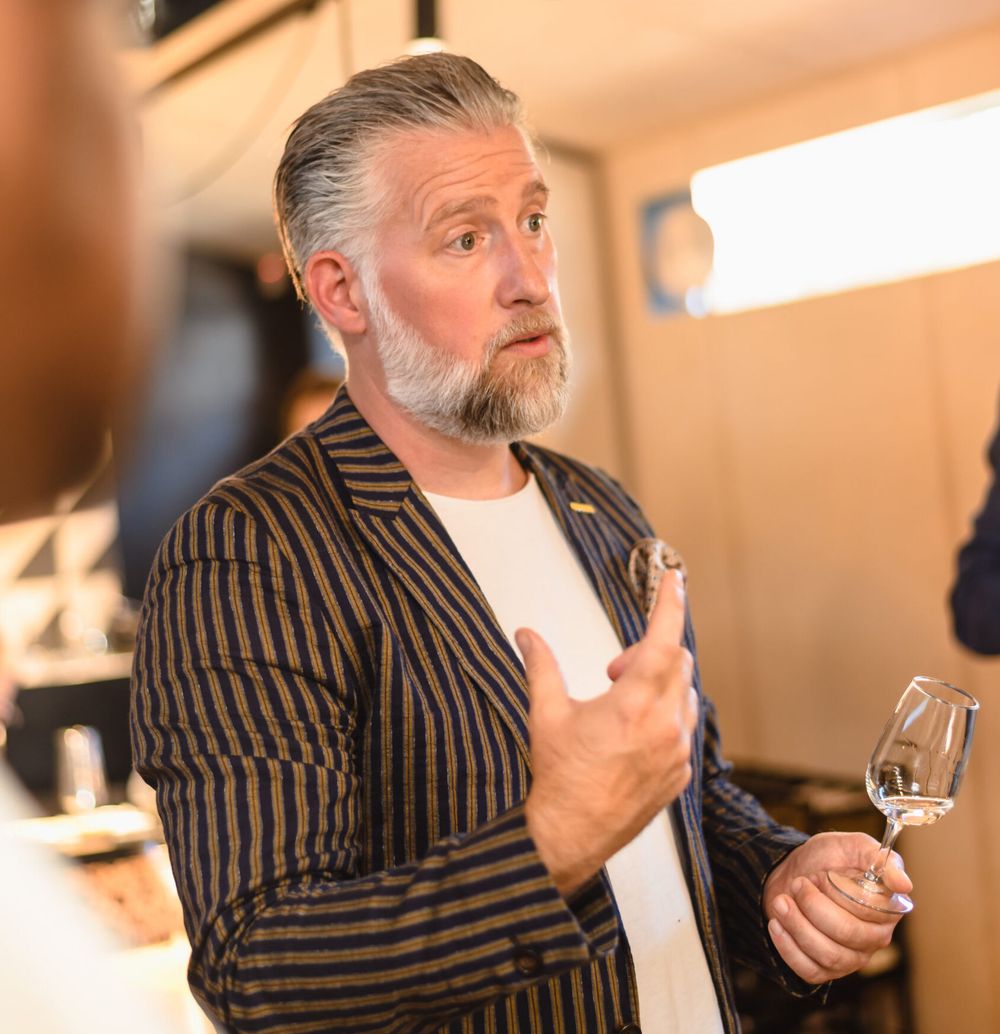
Jon Lister has jumped at the chance to use his bartending skills to help work with the next generation of bar talent. Photography Liz Isles
That said when Lister first joined Speciality Brands in 2014 it was a very different business to what it is today. In fact, you could get the whole team in the back of a London taxi. Now you would have to hire a coach, as the company has expanded from four in 2014 to 27 now.
But the pace of growth has felt carefully managed with new people joining for a specific reason. Which has also kept pace with the number of bars and customers that Speciality Brands is now working with and having the right talent in the company to help drive and promote its brands in the right outlets.
“We have invested at the right time in the right places and built at the right pace,” says Lister.
The quality and reputation of the brands means they have “opened up lots of opportunities in the trade as they are “held in such high regard”, he adds.
It was the quality of the brands in Speciality’s portfolio that convinced Lister it was the right company for him to be at. Having seen what the likes of Diplomático rum, Michter’s, Nikka whisky, or Cocchi vermouth, mean to the customers in the bars he has worked in, he was fascinated to see what it would be like to work with these brands, and their owners, on a day-to-day basis.
He admits he had much to learn about the supplier side of the fence when he joined. Not that Speciality Brands is in any way like the corporate life you might have working for a major brand business.
“I can remember one of my first training sessions with Chris [Seale] and opening up my laptop to go through a PowerPoint presentation I had prepared. He told me off straight way and said “We don’t use laptops in trainings in this business”,” he says.
Which was music to his ears, he adds.
Lister is also not alone at Speciality Brands. The company is full of successful people who have made the move from the bar to the supplier side. “Behind the scenes we have such a plethora of experience to keep us all honest,” he says.
Right brands, right venues
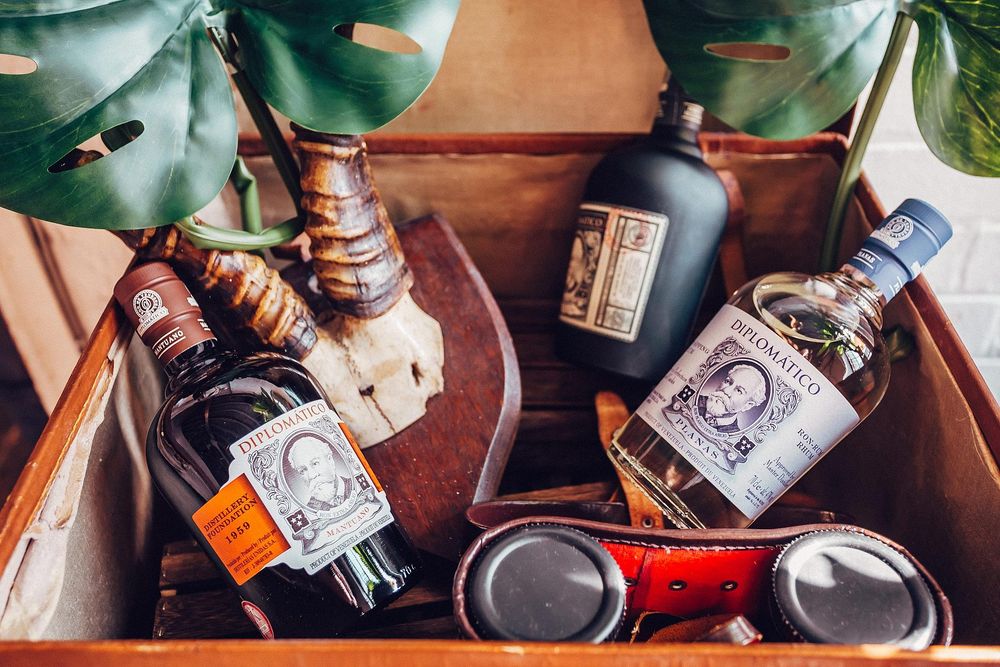
It is the chance to work with such leading brands as Diplomatico that has convinced so many senior bar staff to join Speciality Brands
Lister is happy to give a little bit of insight into how Speciality works with its key customers.
“It is all about understanding the demographic of whatever part of London or the country you are talking about. We work on a pyramid system of getting the brands into the hands of the right people at the top. Then if we get that right it drips down organically through the bigger and wider markets in the trade.That is when it starts paying dividends.
“We have played the long game and whatever success we have is all based around the relationships we have. We don’t own the brands we work with. It is our responsibility to really understand what our brands are about and how we can help our trade partners reach customers. We are there to help with the brands we have.Look at Cocchi. Look at Diplomático. They are brands that people want.”
Not that it is at easy as simply turning up and expecting to get a listing. “You have to follow all that up with a passion and understanding for their business and what professional support you can provide for them. That is how you hopefully build loyalty to the brands we have.”
Having been a bartender in some of the most demanding and exacting venues means Lister is well placed to know what pressures his customers are under and what would help them the most.
“The market evolves so quickly, so having the bartender’s ear is ridiculously important. We are not pen pushers. You need to be in tune with the needs of the bartender. I learnt a long time ago you have to check in your ego when you are on this side of the bar.”
He adds: “The wonderful thing with Speciality is that not only do we have some of the best brands in the market, but we have their brand owners too who want to work with us and our customers. That’s why the relationships we have with them are so humbling and so cool.
“Hospitality can be an inhospitable business, but if you get the relationships right then it can be a tear jerkingly awesome place to be. I love it.”
Different roles
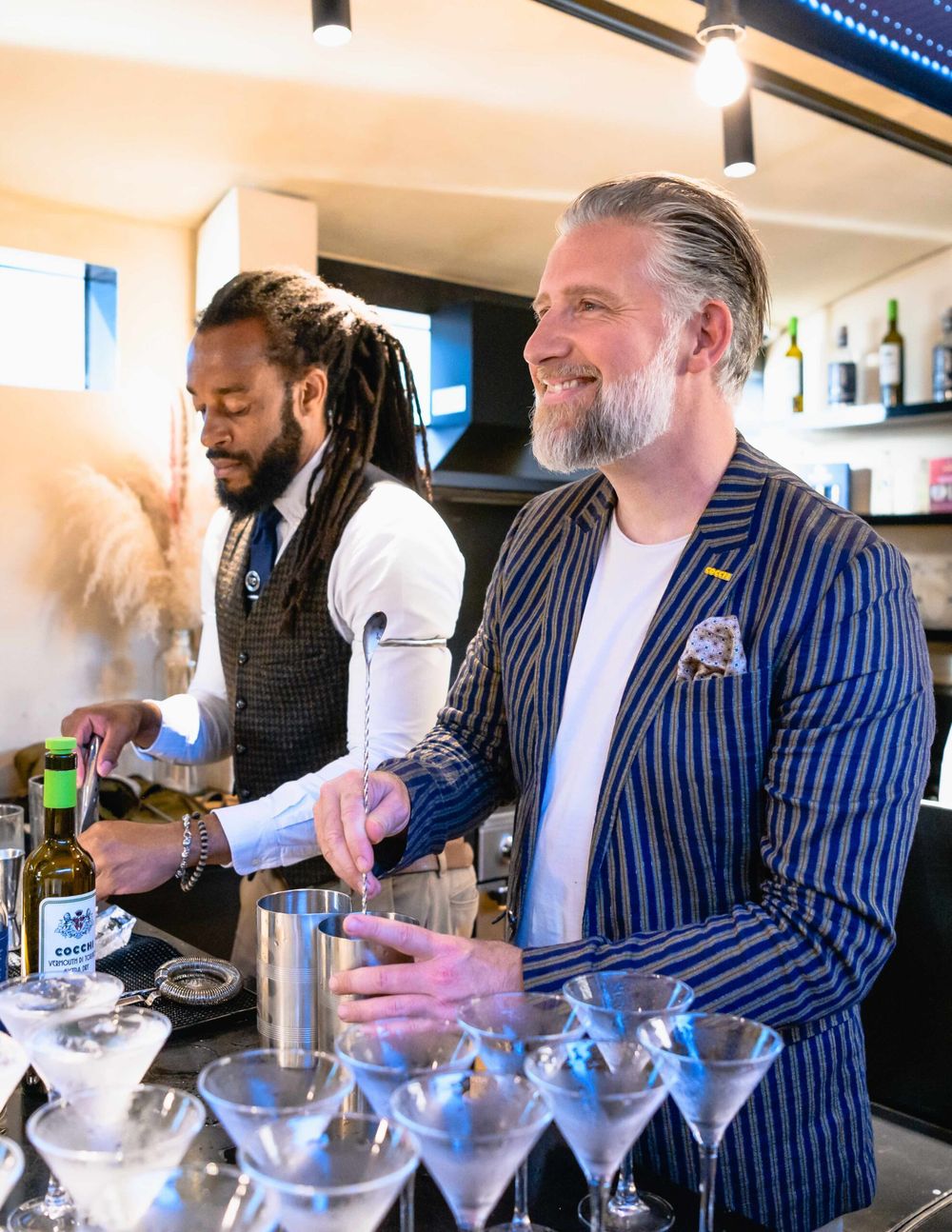
Jon Lister says it is vital Speciality Brands carefully selects the right brands in its portfolio for the most relevant venues and does not try and push them all. Photography Liz Isles
The Speciality Brands’ portfolio is also full of brands that all have different roles to play. Like a squad of players in a top Premier League team. There are the power drivers that bartenders seek out to have on their lists. Then there are what Lister calls the “reinforcing brands” that can work alongside the main brands to act depth and diversity to a drinks range. These might be smaller batch, more exclusive lines that offer something a little bit different, or extra.
“We are like magpies. We always like to have something shiny and new in the range too,” he adds.
“We have Black Tot, Hampden Estate, or Caroni. Rums that will never see a speed rail, but they keep bartenders interested. It’s the same with agave, whisky and vermouth. But we will not have brands that overlap or tread on each other’s toes. It is not about filling out the portfolio. It is about filling the gaps. It is helping our customers be seen with the right brands.”
It is also about having the right number of diverse brands in the range that allow Speciality to respond and react to any emerging trends in the market. Which are increasingly hard to spot, he stresses.
“Ask five bartenders what the latest trends are and they will tell you different ones.” He adds: “Nothing is ever new. It has been done before to some extent or another.”
He does, though, see particular mileage in the low alcohol movement. Not only are there some interesting category changing drinks being introduced, but it is also blurring the lines more between sommeliers and bartenders. Before never the two would meet, but now there is a need from both sides to better understand how these drinks can be used in different drinking occasions. “That has to be good for the industry,” he says.
“We need to be more open to other drinks categories and not shoehorn yourself into one side or the other. We saw during lockdown how the consumer had the opportunity and time to hone in on what they liked. It has become less about ordering a margarita, or a mojito, but wanting to have a particular drink style. That’s why we are seeing such an interest in expresso martinis and negronis. They now know what brand they want with that style of drink. A better educated consumer is also good news for us all. It allows us to offer them different styles say of negroni,” he explains.
Vermouth opportunity
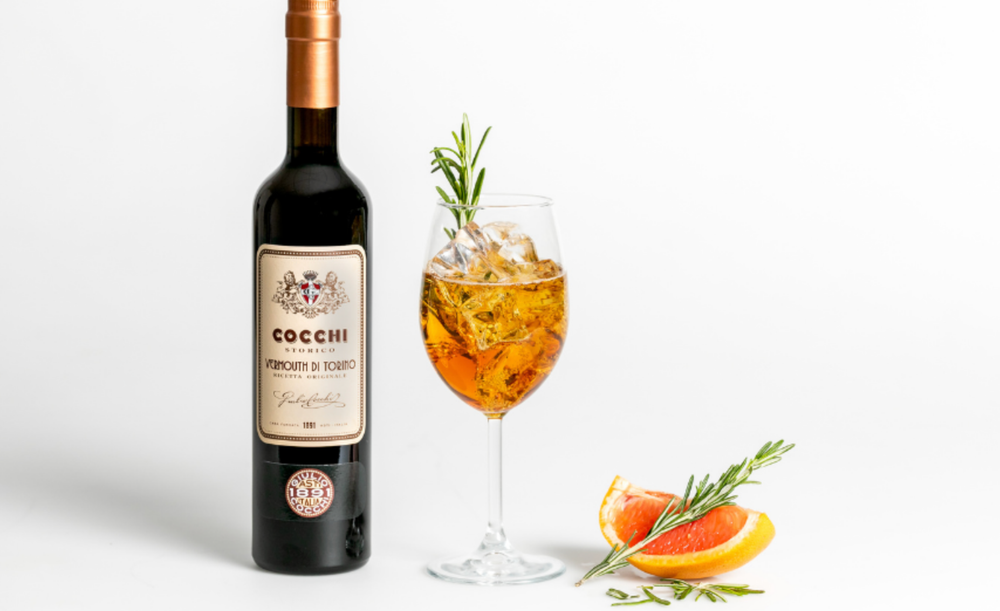
Lister is pleased to see the increase in demand for quality vermouth and what a brand like Cocchi can offer ambitious bartenders
It’s why he is pleased to have taken on an ambassador role for Cocchi vermouth as it too offers bartenders and customers alike a platform on which to build classic cocktails. “It does not matter if you like gin, whisky, rum or vodka, the most versatile ingredient in your drink is the vermouth.”
Vermouths have become far more important in their own right. They are now an integral ingredient in any classic cocktail that a bartender has to get as right as the main spirit, he explains.
“Younger bartenders probably don’t realise that the quality of spirits is probably better now than it has ever been. Standards have not been as good as they are today.There is such an attention to detail and focus. If you are making a two or three ingredient drink then you have to make sure that each one is as good as they possibly can be. Education is paramount to that.”
As with any quality brand you have to look at the founders, the people behind it and with Cocchi it is now in the hands of the Bava family, a five-generation winemaking family, who see such a strong future for quality vermouth.
“They want to raise its awareness, protect it as an ingredient and its history. They want to build the category as much as the brand. I really love and respect that. It is all wine and spirits coming together.”
Bright future
Lister says he is excited about the level of bartender talent right around the country. He is particularly pleased to see bartenders not all rushing to London to make their fame and fortune. Instead they are looking to make a name and reputation for themselves in their home cities and towns, which is only helping the quality of bars and venues up and down the country.
“There is a lot more appreciation of their own cities and where they come from. Be it Liverpool or Brighton, Newcastle or Leeds. They are creating their own award-winning bars. It has all become less postcode centric than it used to be. Bartenders realise they can make their mark and keep their souls true to what they want to do.”
Head of creative
Lister is pleased his role allows him to still make full use of his bartender’s knowledge, experience and desire to create. As head of creative & drinks he is tasked with coming up with new serves for its brands that will resonate and be relevant for bars and venues in different areas of the market and parts of the country.
“I have never lost the joy of creating drinks,” he says. “I am honing that now more from a company position. How can we create a signature serve series for our main brands?”
Styles and recipes that bars can either use or take inspiration from to adapt to their own venue. “We want to be thought provoking and help venues provide a better service for their customers,” he says. “It is making good, better and best serves for different parts of the market.”
There is now a bigger opportunity and need for suppliers like Speciality to actually provide bars with pre-mixed cocktails and products they can use directly behind the bar, particularly with the shortage of skilled staff in some areas.
“The more we can do to provide serves and completed drinks is really helping bars. We have that resource and it is starting to become a big thing in the trade.”
Flavour mapping
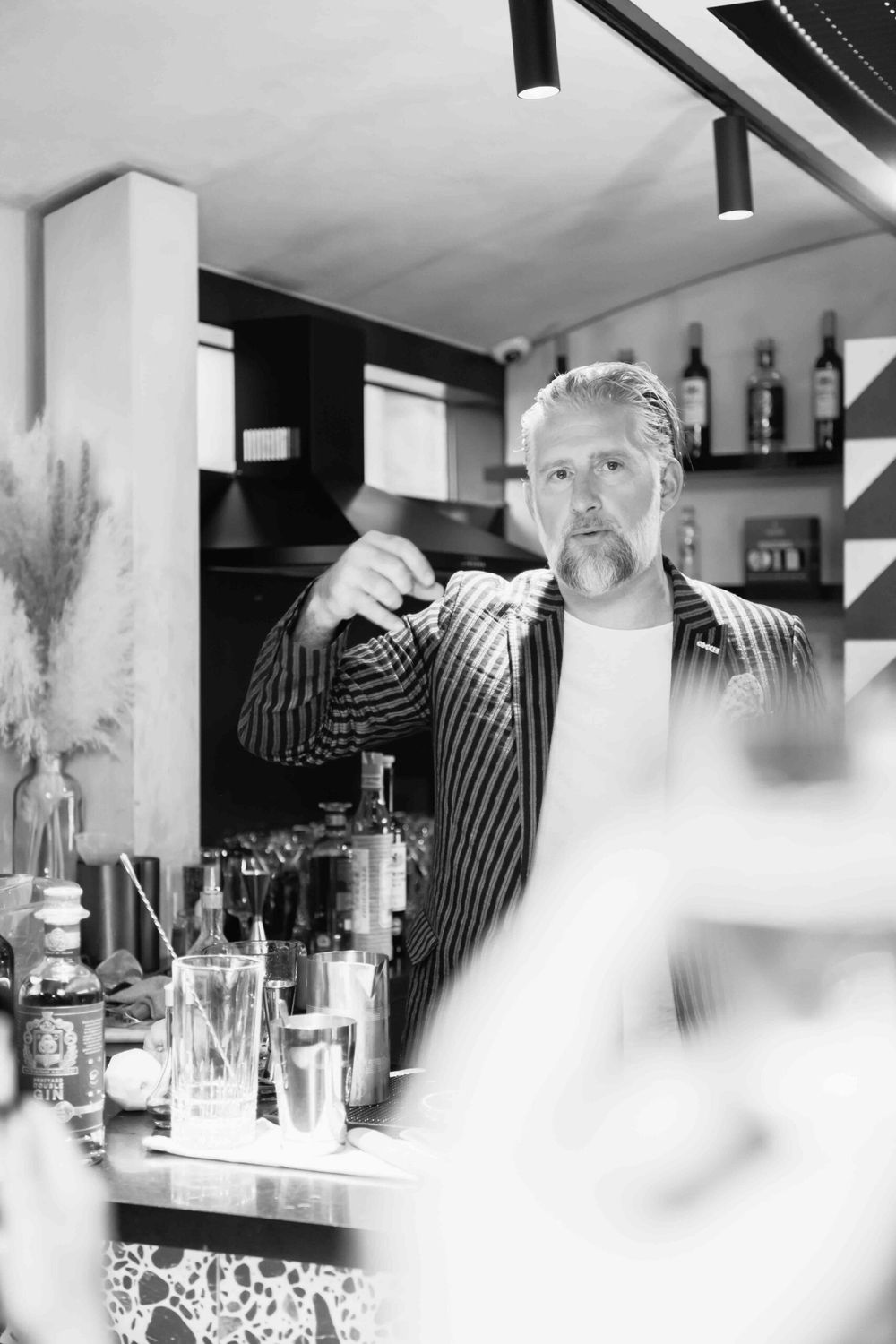
Jon Lister works with Speciality’s portfolio to come up with new drink serve ideas and cocktails and has created a new flavour mapping system to help bartenders look at their back bar in a different way. Photography Liz Isles
A key part of his job has been to create a multiple sensory flavour wheels and serving suggestions to go alongside those signature serves. The “theatrics” as Lister calls it that helps bring a bit of glamour and fun to venues through the drinks that they are making.
“I like deconstructing things and working out what is it about a particular drink that we like. The taste profiles it has, the things we remember.”
This has enabled Lister to create a visually driven new training kit that sets out the flavours and ingredients bars will need to re-create the signature serves they have developed.
“I have developed my own training that looks to capture everyone’s attention and heart in the room. From the romantics, to the hungover ones. It is finding a way of training that will capture their idiosyncrasies and gives us the best chance to talk to them.”
So for Diplomático the flavour profile also involves a bit of Barry White music, a bit of shag carpet and dark chocolate. “We try not to take things too seriously.”
Other training props include edible jellies, herbs and spices and more. “We want to give people a sense of what we are talking about,” he says.
To help do that he asked each of its brand ambassadors to come up with the five flavour profiles they associate with the brands they look after. The descriptors they just have to use when introducing the product to a customer. They were then able to give up to eight additional flavour characteristics that add depth to the original five.
“It makes them hone in what is really important,” says Lister. “It makes you see a brand in a very different light and hopefully gets a bartender looking at your brand in a different way too and help them understand what sort of cocktail they can make.”
It also gets the conversation away from just talking about the traditions, and the ways the products are made, but what they really taste like and how that can resonate with customers and consumers.
“It makes bar training as interactive as possible. They are able to see pictures of the flavours {lemon, apple etc] as well as taste them. That visual interface is potentially a lot more memorable and meaningful.”
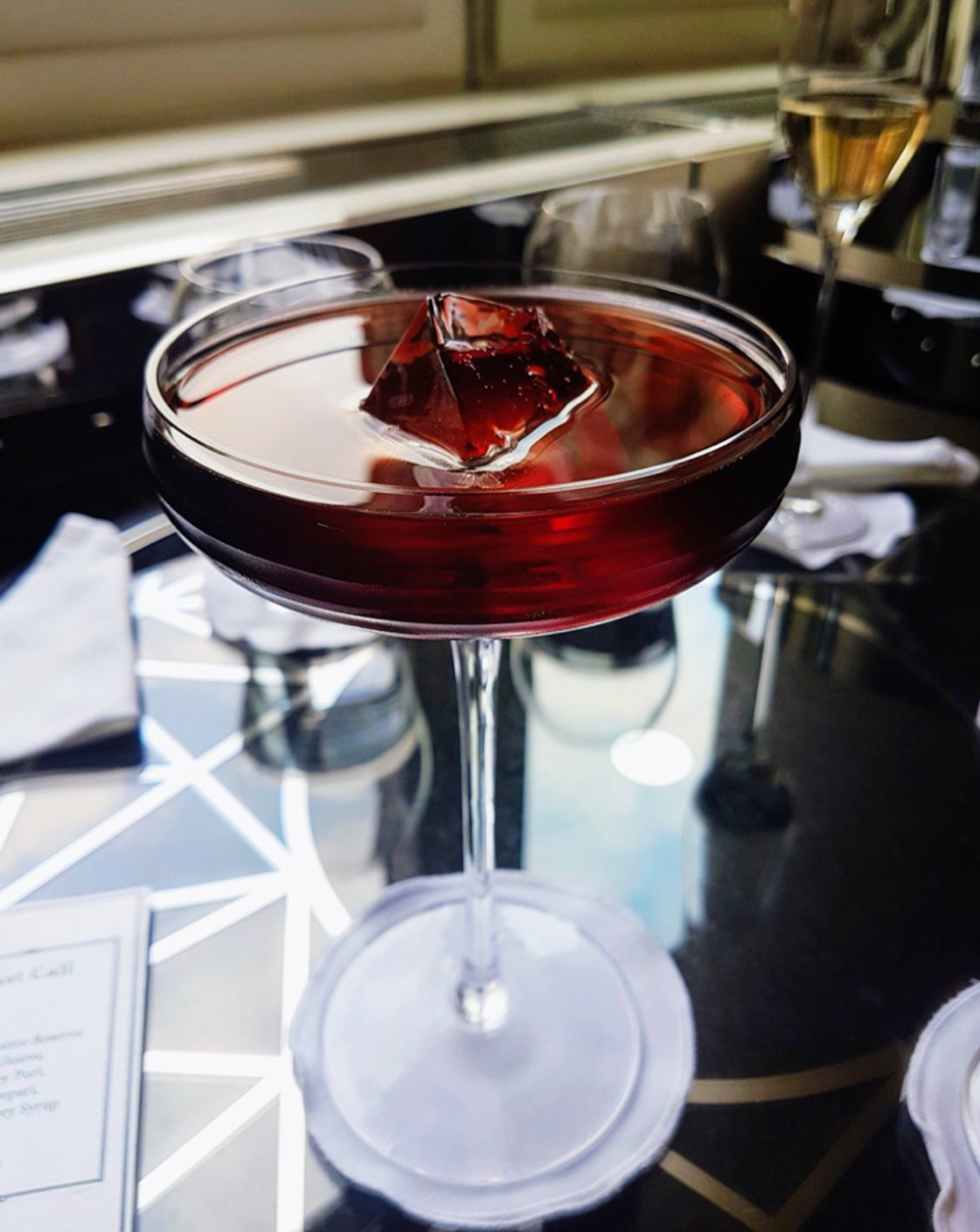
Here’s the Last Call cocktail created by the team at The American Bar at The Savoy using
Diplomatico Rum on its coast to coast menu.
Experiential training
He is also looking at more experiential and event-based trainings to help drive home its messages – like the day in the life of a negroni and how it changes depending on what time of day you drink it.
“That’s how my job has evolved. It’s all about how we can create a wow experience.”
Lister is also able to use all his years of experience in working in some of the world’s most cutting edge and innovative bars – like Purl – to capture what it is the most relevant, exciting and meaningful to the next generation of bartenders and mixologists.
“That’s the key. It has to be relevant to the sector the bar is operating in. How can we use our brands and these training tools to help the teams working in these bars. We are not there yet with some of our brands.”
Which also means expanding Speciality Brands’ distribution into some of the larger pub and restaurant groups where Lister believes they could make a big difference with the brands and the training they can offer.
“We are on the cusp of working with some of these bigger operators and how we can be relevant to them as well,” he says.
“Bartenders did not always have this sort of relationship with their suppliers. In the past we were given some point of sale and then told they will be back in a few months’ time with some more. It is nice to have a much more meaningful relationship. Where we are going into someone’s bar and asking them how we can help them make better drinks.”
He adds: “A bartender’s ego is a fragile one. You have to go in with the right approach and not scare them off or patronise them. You have to be innovative, but don’t take control out of their hands.”
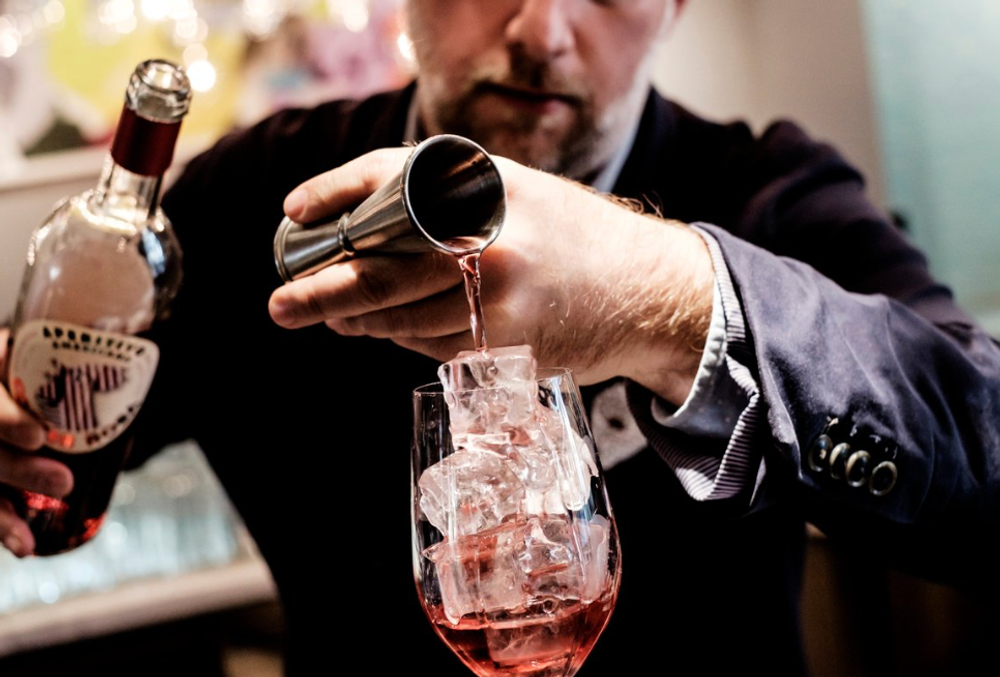
Working with bars on new serves for the brands in the Speciality Brands portfolio is a key part of Jon Lister’s role
Lister says as a company it is important Speciality grows at a pace that ensures it is still able to give all its customers the service and support they need. Growth, he stresses, does not mean “more bums on seats” in terms of the number of customers it has. It is also about growing and building the relationships it already has and increasing sales that way.
“Growth is one thing. Maintaining an ethos is even more important,” he explains. “That is about building the right team and having the right people. It is about having a vision of where we want to be and what is needed to get there. We are very much playing a long game here with the right brands, people and relationships. We all give a shit.”
Finding talent
When Speciality is looking to bring new people to the team it is very much about choosing the right personality that is going to fit in with the company’s way of working.
“It’s the same with our brands. We all have to bring our own personalities to fill the jobs we have. But we know a brand manager in Cornwall is going to be totally different to one working in London.”
The hardest and most important skill to get right when bringing in new talent is “not to recruit in rush”. If the right fit is not there then it would much rather wait until they find the right person.
“That is a huge discipline to get right,” he says. “But you have to do that to make it work.”
If anyone is best placed to pick out the most creative bar talent in the country, it is Jon Lister himself.
- To find out more about Speciality Brands go to its website here.
- Speciality Brands is a partner supplier of The Buyer.
